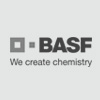- Description
- Specifications
Catalog #: PKA-321
Description:
Protein kinase C (PKC) is a family of serine- and threonine-specific protein kinases that can be activated by calcium and the second messenger diacylglycerol. PKC family members phosphorylate a wide variety of protein targets and are known to be involved in diverse cellular signaling pathways. PKC family members also serve as major receptors for phorbol esters, a class of tumor promoters. Each member of the PKC family has a specific expression profile and is believed to play distinct roles in cells. The protein encoded by this gene is one of the PKC family members. Studies both in human and mice demonstrate that this kinase is involved in B cell signaling and in the regulation of growth, apoptosis, and differentiation of a variety of cell types. Alternatively spliced transcript variants encoding the same protein have been observed.
Description:
PKC-d Human Recombinant produced in Sf9 is a glycosylated, polypeptide chain containing amino acids 2-676 and having a molecular mass of 80 KD. This protein is the full-length form of the protein with an amino terminal poly His-tag.
PKC-d is purified by proprietary chromatographic techniques.
Synonyms:
Protein kinase C delta type, EC 2.7.11.13, nPKC-delta, PRKCD, MAY1, MGC49908.
Source:
Sf9 insect cells.
Purity:
Greater than 90% as determined by SDS-PAGE.
Formulation:
PKC-d is supplied at a of 0.1mg/ml in 10mM Tris, pH 7.4, 0.1M NaCl, 20% glycerol, 1mM DTT, 0.1mM EDTA, 0.2mM PMSF and 0.03% Brij-35.
Physical Appearance:
Sterile Filtered clear solution.
Storage:
Store at 4 °C if entire vial will be used within 2-4 weeks.
Store, frozen at -20 °C for longer periods of time.
Avoid multiple freeze-thaw cycles.
Unit Definition:
1160 units/mg. One unit of PKC? activity transfers 1 nmole of phosphate to a MARCKS protein per minute at 30 °C. Recombinant human active PKC? also phosphorylates full length myelin basic protein, histone, Rad9, MUC1, SRF, eEF-1? Stat3, hsp-27, and PKC? and PKC? pseudosubstrates. Activity requires incubation with lipid activators but not calcium, and may vary depending on the substrate and reaction conditions. The optimal concentration should be determined for each specific application. PKC? is involved in B-cell signaling, and in the regulation of growth, apoptosis, and redox responses. PKC? can be phosphorylated by src tyrosine kinases.
Usage:
Denovo Biotechnology's products are furnished for LABORATORY RESEARCH USE ONLY. The product may not be used as drugs, agricultural or pesticidal products, food additives or household chemicals.
















